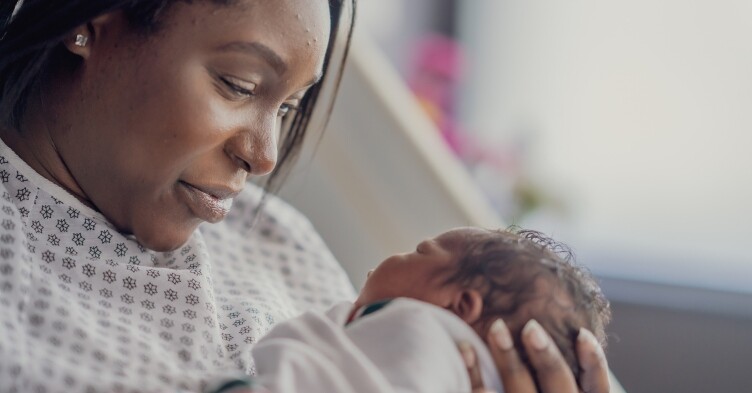Mental health care ‘heading in the wrong direction’, say nurses

Just one in 10 nursing staff believe governments across the UK have achieved parity of esteem between physical and mental health care, a Royal College of Nursing (RCN) survey has shown.
To coincide with World Mental Health Day, the RCN has today revealed the findings of a nationwide survey of more than 4,000 nursing staff who have raised serious concerns about the provision of mental health services.
A decade after the NHS Constitution in England changed to ensure equality across the treatment of physical and mental health care, nurses have warned that mental health remains ‘the poor relation’ in the health service.
The RCN has now called on UK governments to support mental health services by increasing funding, improving access and ensuring safe levels of staffing.
In addition, it stressed that to ensure treatment is ‘equitable and coordinated’, health boards and integrated care systems need to ‘establish robust systems’.
‘To get the best care, people should expect integrated services,’ the college added.
Related Article: Diagnosis Connect service will link people to advice from charities
But nursing staff within the survey had warned that in practice, care is ‘pigeonholed’ and that getting the right treatment often comes down to knowing the right people.
Among respondents who worked within physical health care settings, more than half (54%) said working more closely with services such as general practices and primary care would help better meet the mental health needs of their patients. Almost 70% cited the need for further training and 48% felt that ‘regular commissioned bespoke health clinics’ would help.
Across all nursing staff who responded, only 10% reported that their country had been ‘successful’ or ‘very successful’ in ensuring mental health gets equal attention to physical health. Meanwhile, two-thirds (68%) said their nation had been ‘unsuccessful’ or ‘very unsuccessful’.
In addition, just 12% reported that their local NHS service had either been ‘successful’ or ‘very successful’ in delivering mental health equality, with almost 60% stating that local services had been ‘unsuccessful’ or ‘very unsuccessful’.
Within the RCN survey, nursing staff described the treatment of mental health patients as ‘appalling’ and reported patients having to wait months and travel miles for mental health care. Some patients were also having to pay privately to get the care they need, nursing staff added.
One member told the RCN that ‘once you have a mental health diagnosis, you receive worse physical health care’, while another stressed ‘mental health patients do not have their physical needs met, and vice versa’.
The RCN warned that the number of vacant mental health nursing posts was ‘disproportionately high’, highlighting that these vacancies make up almost one-third of all nursing vacancies in the NHS in England.
In England alone, there are over 13,000 nursing staff vacancies in mental health services, it added.
RCN chief nurse, Professor Nicola Ranger, said: ‘Despite many years of promises and commitments for equal treatment of physical and mental health care, nursing staff are seeing things heading in the wrong direction.
‘Governments across the UK are failing to provide the funding and resources that mental health care services need, with serious care consequences for patients and service users.
Related Article: CVD prevention must be national health priority, says report
‘People are waiting far too long, traveling huge distances, or even feeling forced to pay privately to get treatment.’
She added: ‘This World Mental Health Day, we’re reminding governments why parity matters and to provide the funding, resources, and joined-up care between mental and physical health care that people desperately need.’
In response to the survey findings, deputy chief executive of NHS Providers Saffron Cordery said: ‘NHS trusts are extremely concerned that so many people, especially hundreds of thousands of children and young people, have long waits for the help they need.
‘A capacity crunch where stretched mental health services with too few staff and resources strive to meet growing demand is heaping pressure upon trusts.
It appears that achieving equity for mental health services is no longer a priority.’
She pointed to the 1.9 million people on ‘lengthening’ waiting lists for mental health care, adding the situation was ‘an urgent national problem’.
‘Mental health care needs more long-term investment, including for staff, for capital to transform dated facilities and for early intervention and prevention, to give patients the high-quality, 21st Century treatment they need,’ added Ms Cordery.
Related Article: Postnatal contraception advice reduces the risk of back-to-back pregnancies
A Department of Health and Social Care spokesperson said: ‘We’re going further and faster to transform our country’s mental health services, with up to an additional £2.3bn being invested annually until 2024 to expand services, so an extra two million people can get the support they need.’
They also said the government’s Major Conditions Strategy ‘will look at the prevention and management’ of mental health.
The spokesperson added: ‘The mental health workforce continues to grow and we’re also investing around £200m from this year to modernise and digitise mental health services across England – including digitising the NHS talking therapies programme.’

See how our symptom tool can help you make better sense of patient presentations
Click here to search a symptom




